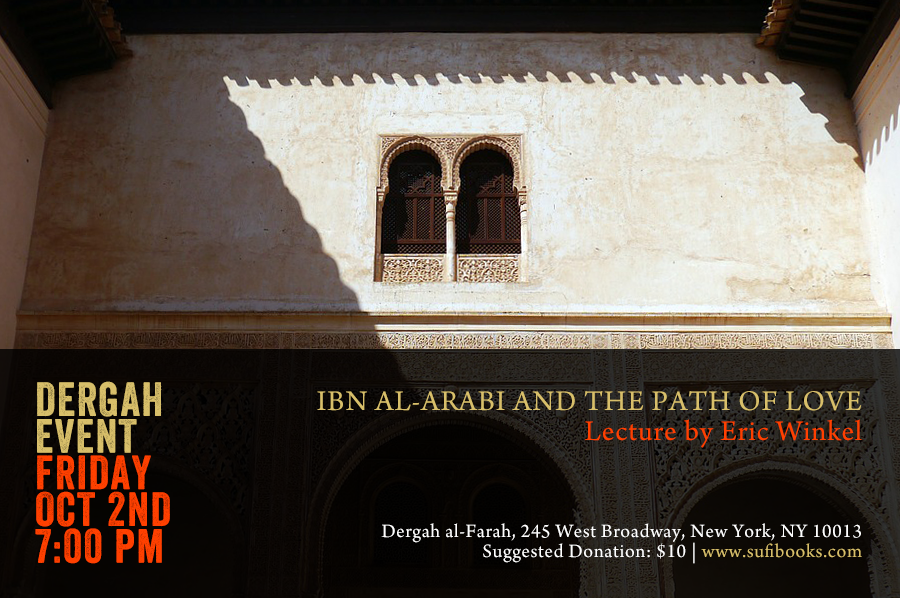“Read what has been deposited in my ruled lines.” With this command, Ibn al-Arabi starts to see in the Youth the structure of the 560 chapters that will become the Futuhat al-Makkiyah, which he will dictate to his circle of friends. He is recording the knowledge he found etched in light throughout the body of the Youth. The knowledge is whole cloth, but perhaps the one threat that runs throughout is love. In the chapter on love, Ibn al-Arabi explains all by love: why there is a universe, how particles and molecules come together, how letters “join together” to “reproduce” words and become meaningful sentence, and why we always long for what we don’t have. The love he is talking about is “in love” in English, with other more noble and less insane forms of love being covered by other Arabic conepts. In fact the love he is speaking of is what will spread from Muslim Spain throughout Europe and beyond as chivalry and romantic love. The knight’s love for the unattainable lord’s lady can flourish precisely because it is not a “real” or consummated relationship. The love for what isn’t characterizes God’s love for the creation that isn’t yet, and our love for fame and fortune which is never enough (or consummated), and our love for this or that beloved who isn’t here. English seems too “bottom line” when translating these complex, layered, and intricate Arabic depictions of love. No wonder students in medieval universities were abandoning their Latin studies to learn Arabic—and read the Arabic poetry that came out of Spain and gave Europe the idea of romantic love.
Dr. Eric Winkel (Shu`ayb) is three years into the project to produce the first translation of Ibn al-Arabi’s Futuhat al-Makkiyah. At 10,000 pages, this work is one of the most important texts of Western civilization. Ibn al-Arabi uses many languages to describe the vision of the Youth at the Ka?bah, including grammar, mathematics, geometry, and Islamic Law, but perhaps the language of love is the most accessible to us today.
